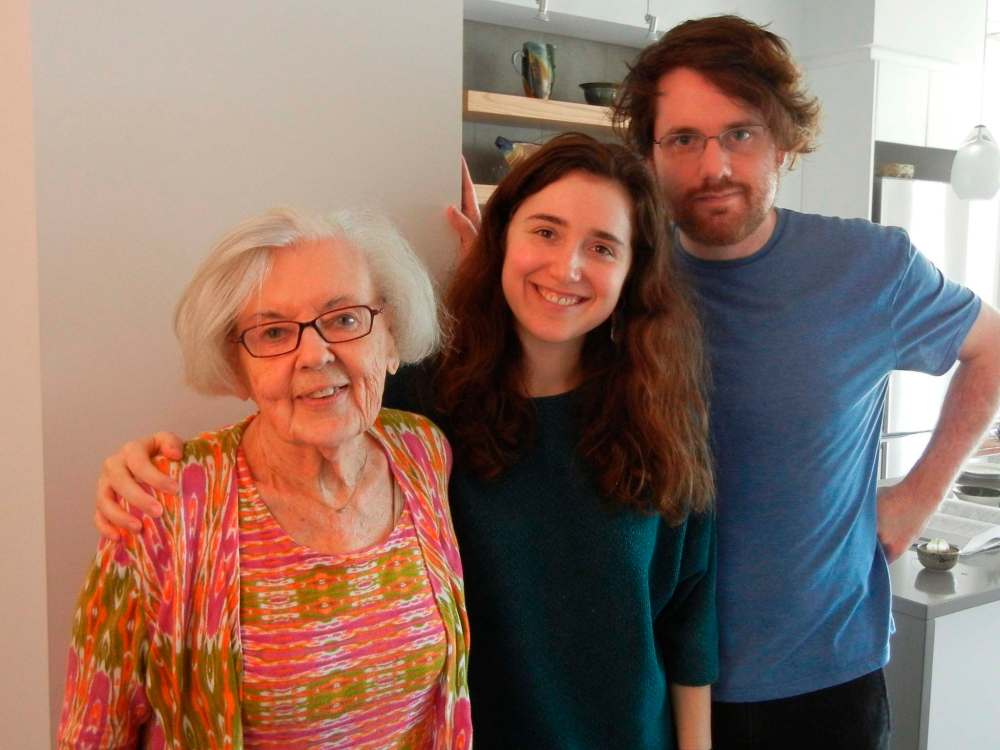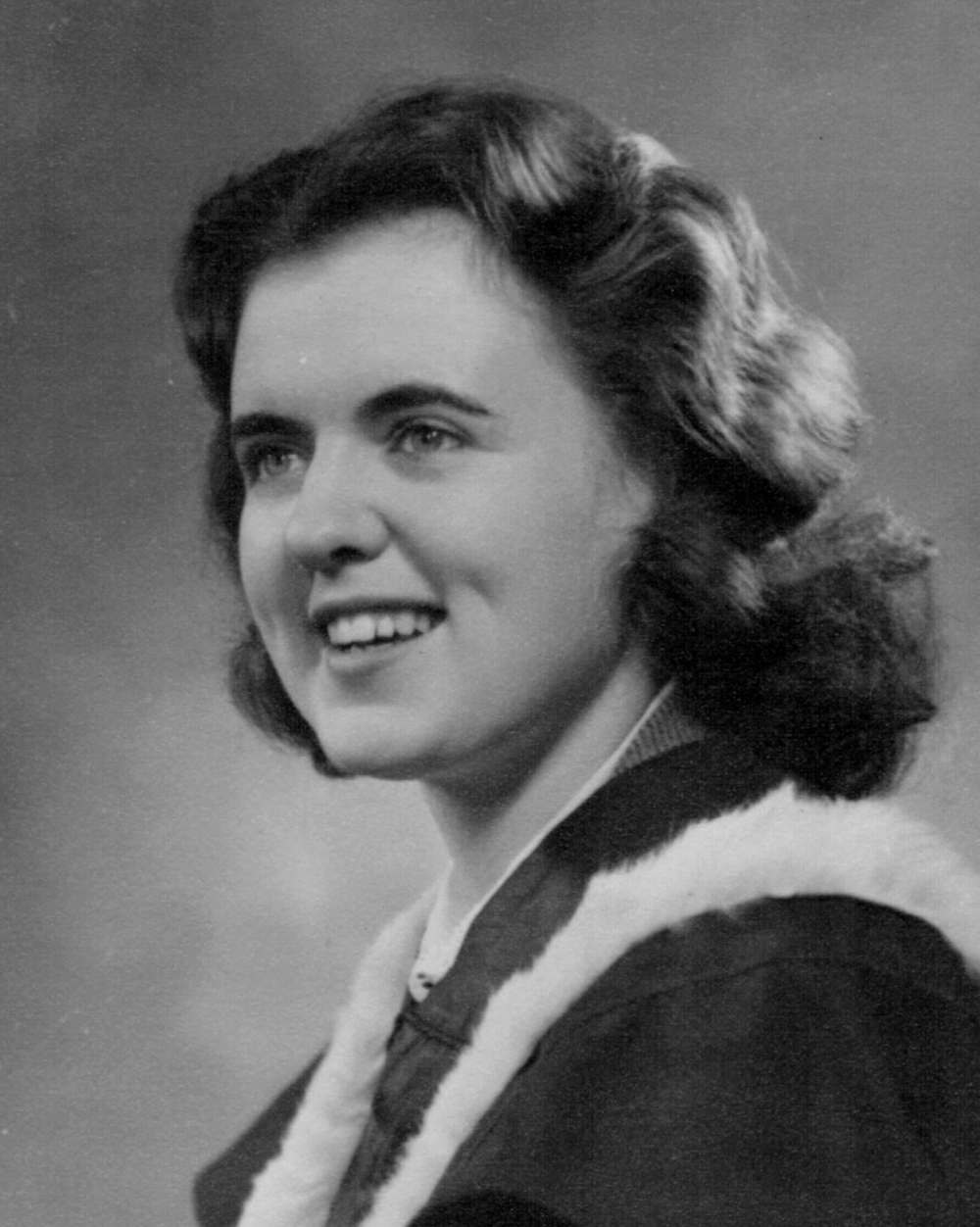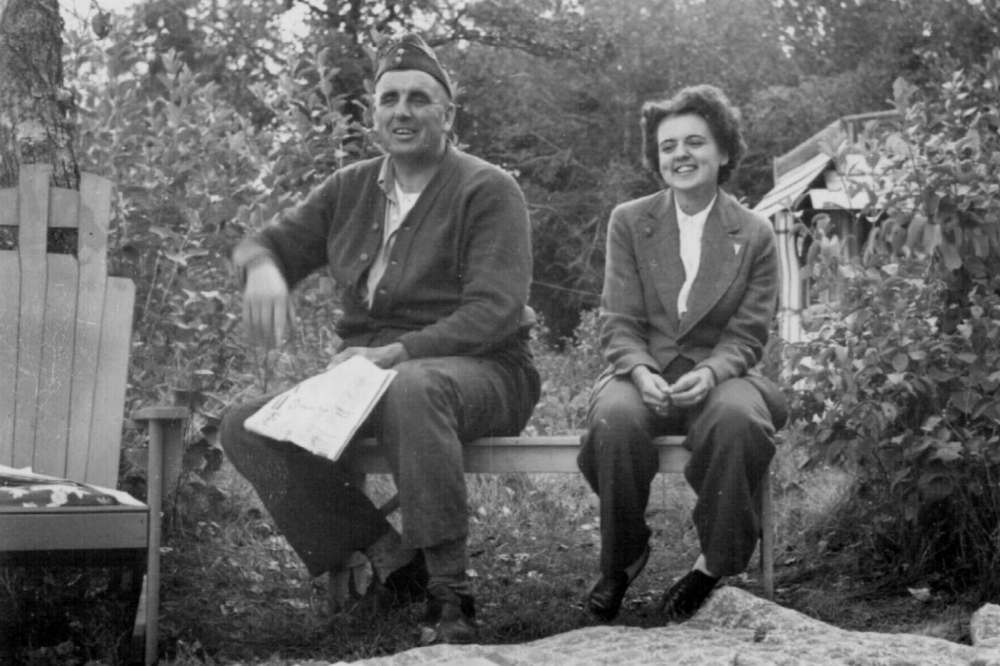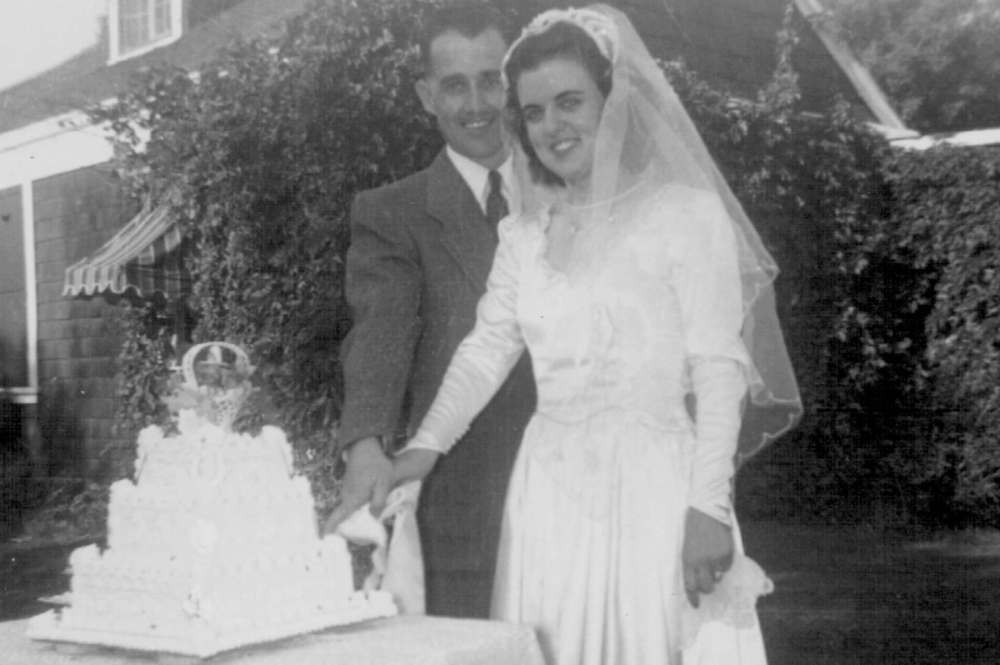They heard her roar
Brothers' war deaths sparked Manitoba woman's peace activism; commitment to political beliefs fuelled role in teachers' union
Advertisement
Read this article for free:
or
Already have an account? Log in here »
To continue reading, please subscribe:
Monthly Digital Subscription
$1 per week for 24 weeks*
- Enjoy unlimited reading on winnipegfreepress.com
- Read the E-Edition, our digital replica newspaper
- Access News Break, our award-winning app
- Play interactive puzzles
*Billed as $4 plus GST every four weeks. Offer only available to new and qualified returning subscribers. Cancel any time.
Read unlimited articles for free today:
or
Already have an account? Log in here »
Hey there, time traveller!
This article was published 16/03/2019 (2180 days ago), so information in it may no longer be current.
Like many people in Canada and in the United States in the 1960s, Nina Phillips protested against the Vietnam War and pushed for nuclear disarmament.
But unlike other protesters, her ideals, thoughts, and conviction were forged by tragedy when she was a young adult — two of her brothers died during the Second World War.
Phillips, who died on Dec. 21 in Ottawa, was 94.

“She would say she had a very full life,” said her middle child, Melanie Phillips.
“She had a good life. We are so grateful for her,” said Dianne Phillips, her youngest daughter. “She really emphasized it was important for a woman to have their own lives and interests… she was one of the very few moms on our street who worked outside the home. It was unusual then.”
Phillips was a teacher before she had three daughters, and she went back into education after they were old enough to get home by themselves. But, in between, she was a member of the anti-war Voice of Women’s Manitoba chapter and throughout her life she was committed to the Commonwealth Co-operative Federation and continued when it became the New Democratic Party.
Melanie said her mother’s political activism continued until she died.
“Last year, during the (Ontario) provincial election, I asked her, ‘Would you like to vote?’ and she almost jumped out of bed,” Melanie said. “She was determined to vote for the NDP.”
Phillips was born in Winnipeg in 1924 to Cecil and Nina Walley. Phillips’ dad was an engineer and her mother is believed to be the first woman in the world to graduate with an engineering degree from a recognized university. Her parents met while going to university in England and her father came to Canada because the country was looking for immigrants.
Phillips’ parents got married in Winnipeg. The couple had 10 children, but one daughter died.
When Nina was two, the family uprooted from Winnipeg and moved to a farm just north of the city, outside Balmoral. Later, when her father became the civil engineer for the RM of Rockwood, they moved into a house on the outskirts of the village.
Throughout the Depression, while her older brothers “rode the rods,” jumping trains and riding on top of boxcars to work in mines out west to earn money to go to university, Nina continued school all the way to Grade 12, before going to the University of Manitoba. She earned her bachelor of arts degree in 1946 and later her bachelor of education degree.

In an oral history Phillips gave to a grandchild a few years ago, when asked why she went to university, she replied: “In our family, you did not think of not going. It was a given. Everyone went. All of us, except Marian, who couldn’t.”
The family says Marian, her younger sister, was born with cognitive disabilities.
Phillips’ teaching career — even before she received an education degree — was in Roblin. She was paid $1,600 per year, with a third of it going back for room and board.
“In those days there was a shortage of teachers because the men had gone to war,” Phillips recalled. “The government was allowing people to teach without a teaching degree.”
Phillips said she liked to teach, but she also went into that profession because she didn’t like the alternatives for women back then.
“It was either being a nurse or secretary, and I didn’t want to do that,” she said.
But it was while Phillips was in university the first time that tragedy struck the family. First, her 20-year-old brother Keith, who had been in his second year of medicine before enlisting in the Royal Canadian Air Force, died on April 5, 1943, followed on Oct. 20, 1944, by her 28-year-old brother, Kenneth, who was also with the RCAF.
“She was especially close to one of her brothers who died, and she didn’t talk about him much, but she taught us that war was the worst possible outcome and should be avoided at all costs,” Dianne said.

The deaths also sparked her activism in the peace movement, culminating with her being the lone Voice of Women’s Manitoba delegate when the organization went to the World Congress of Women meeting in the Soviet Union’s Kremlin in July 1963, the first time non-Communist delegates were allowed.
Described in a Free Press article when she returned as “an attractive blue-eyed delegate,” Phillips said her group was “quite outspoken regarding our views on totalitarian states, but there seemed to be no hard feelings.”
Phillips met Tom when both were in summer school in 1948, and they celebrated 60 years of marriage before he died in 2010. Tom was also a teacher and taught at Lord Selkirk and Sisler High School before ending his career as principal at Luxton Elementary School.
“After three weeks of dating he asked her to marry him,” eldest daughter Carolyn said. “If you knew my father you’d say, ‘what?’ My dad was nine years older and at the age where he knew what he wanted.
“Of course she said yes.”
All three daughters credited their father for giving their mother the support she needed for her activism by staying home to look after them when she was at evening meetings.
“I can’t think of a single instance where my dad was not supportive of her,” Dianne said.
“With all the meetings at night, my father would go pick her up — I don’t really know how they did it,” Carolyn said.
When Phillips went back to work in the mid-1960s, she worked as a teacher before becoming a guidance counsellor at inner-city high schools including Gordon Bell, Daniel McIntyre and St. John’s.

She also became active in the Winnipeg Teachers’ Association in the late 1960s and by 1975, after serving as vice-president and executive member, she became president.
In a circular to association members during the election, Phillips said she expected the coming year was going to be “both exciting and difficult.”
“We will be negotiating a new contract for January 1976. That we have a strong and united membership in terms of goals will be imperative,” she said.
Phillips was a good person to have as president during labour negotiations because, as Ron Banister, the association’s president in 1980 recalled, she was “feisty.”
“She was a good leader,” he said. “She listened to her members. She wasn’t mild-mannered when it came down to significant issues.
“She had her opinion and she was strident in pushing for it. She was very outspoken — she was a typical strong woman leader of the ‘70s.”
Terry Clifford, who became the association’s president in 1979, said he remembers Phillips when he first became involved with the association around the time she was elected president in 1975.
“She did the job she was supposed to do,” Clifford said. “She cared about education and she cared about teachers; if you don’t care about teachers you don’t care about education.”

Phillips was also president of the Co-operative Women’s Guild, a director with Red River Co-op, on the board of the Manitoba Teachers’ Society, and president of the University Women’s Club.
Even after both she and her husband retired and moved to Winnipeg Beach, Phillips couldn’t shake her sense of wanting to help education in the community. She was elected as a school trustee to the Evergreen School Division.
The couple spent the last years of their lives living in Ottawa to be close to family.
Besides her three daughters, Phillips is survived by five grandchildren, a great-granddaughter, a sister and a brother.
kevin.rollason@freepress.mb.ca

Kevin Rollason
Reporter
Kevin Rollason is one of the more versatile reporters at the Winnipeg Free Press. Whether it is covering city hall, the law courts, or general reporting, Rollason can be counted on to not only answer the 5 Ws — Who, What, When, Where and Why — but to do it in an interesting and accessible way for readers.
Our newsroom depends on a growing audience of readers to power our journalism. If you are not a paid reader, please consider becoming a subscriber.
Our newsroom depends on its audience of readers to power our journalism. Thank you for your support.

